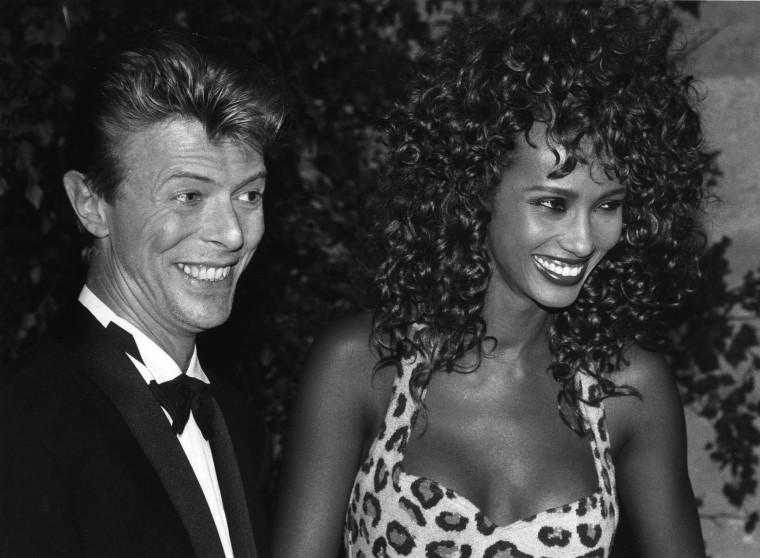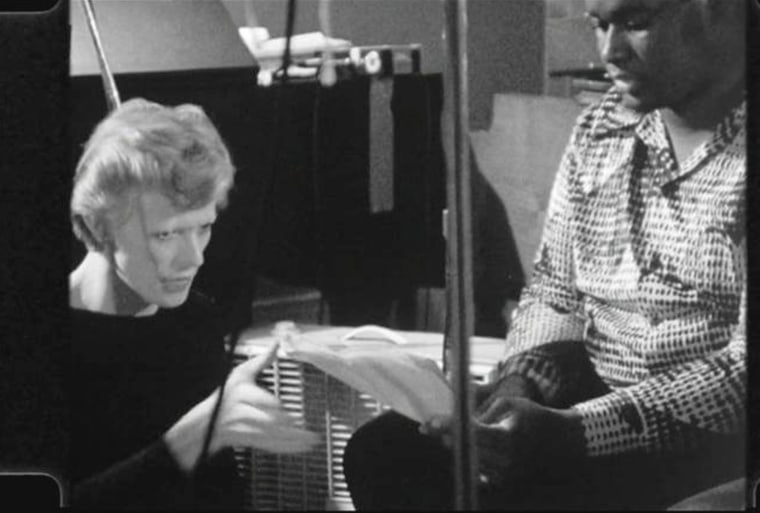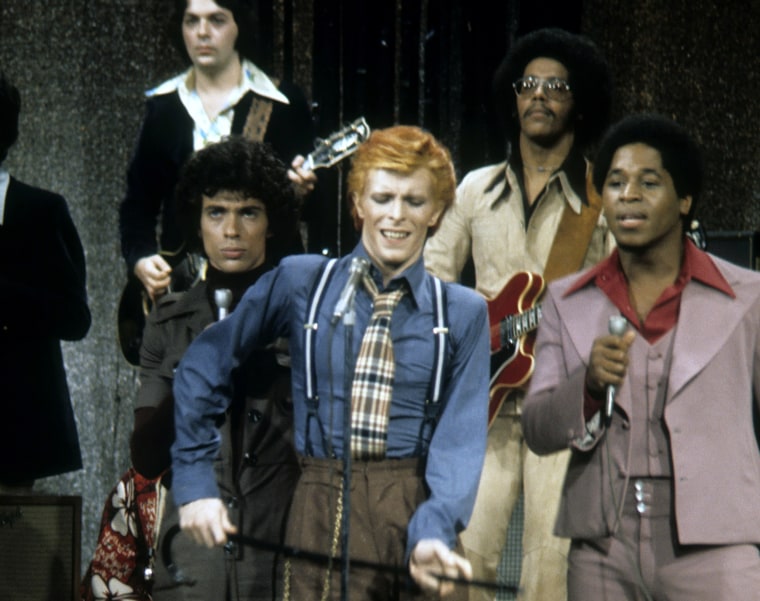“You’re going to make it…next year is your year!”
Music Icon David Bowie reportedly uttered these words to Luther Vandross in December of 1974. The declaration is just a snapshot of the special relationship between the two musical geniuses, recorded within the pages of the Craig Seymour biography, Luther: The Life and Longing of Luther Vandross.
Bowie, 69, died late Sunday evening after a year and a half long battle with cancer.
In many ways Bowie’s praise of Vandross illustrates his utmost respect not only for Vandross, but for the creativity and originality of black artists overall.
In a 1983 interview with a very infant MTV, Bowie famously called out the network for their lack of black artists and hiding black music videos in overnight programming.
“It occurred to me having watched MTV over the last few months that it’s a solid enterprise,” Bowie says to VJ Mark Goodman. “It’s got a lot going for it. I’m just floored by the fact that there’s so few black artists featured on it. Why is that?"
DJ Sir Daniel, a local Atlanta party DJ, said Bowie had a standing relationship with the black community.
“David Bowie, and many other British musicians, arrived on American shores with a deep passion for R&B and Gospel music,” Daniel told NBCBLK. “In particular, David would make his ‘glam-rock’ music, but would also jam with Vandross, Aretha Franklin, Tina Turner and others to edify his love of Black American music.”
Through his blue-eyed soul, said Daniel, Bowie delivered music “on a gritty and soulful level that resonated with African Americans.”
“And of course he ‘married into’ the community via Iman,” joked Daniel, referencing his 23 year marriage to the Somali-born supermodel. Today Iman remembered her husband of 23 years in a series of emotional and nostalgic Instagram posts.

Donnie Simpson, a staple of urban radio, told NBCBLK that when he heard the news of his passing, he could not help but think of Bowie’s admiration and respect for black music and black culture. Add to that, Simpson said Bowie was just so, “cool and different.”
“Back in the day David came to be a guest on Video Soul,” said Simpson, referencing the program devoted to black artists that ran on BET from 1981-1996. “Other than Phil Collins and others, we did not get a lot of white artists on the show. He came to us and said to me that he saw value in the black community.”
It was because of Bowie that Simpson remembers hearing Vandross’ voice for the first time.
A chance encounter in a Philadelphia recording studio led to Vandross doing the vocal arrangements for Bowie’s 1975 "Young Americans" project. Not only that, but Vandross would also receive writing credits on the album and go on to become one of Bowie’s background vocalists for the tour.
The Showtime Documentary about Bowie’s life, Five Years, shows rare footage of tour rehearsals where Luther Vandross and other backing singers like Robin Clark tirelessly refine complex and unconventional soul harmonies together for songs like "Right".

Ava Cherry, a backing singer on the album says she brought Bowie to the Apollo in Harlem to help him build the soul sound that he kept hearing and wanted to be sonically part of. True to chameleon form, Bowie says in voiceover, “I tried to do my own version of that kind of music.”
He was known to call his version "plastic soul".
According to the documentary, it was Carlos Alomar who introduced Vandross, among other musicians of color, to Bowie. Alomar, a Puerto Rican guitarist who met Bowie at RCA Recording Studios in 1974 went on to co-write the signature riff that evolved into the Bowie/Lennon hit, “Fame” and has played with everyone from Mick Jagger to Bruno Mars.
Simpson called the multitude of Twitter tributes on Monday a proud sign that so many different stars, especially black artists, appreciated Bowie and his influence, or were helped by him in some way or another.
He recalled a time when they were both scheduled to be in Minneapolis around the same time. Bowie invited Simpson to one of his performances while he was in town.
“He sits me at the soundboard where the sound engineer sits. Ray Leonard, who is my best friend, goes with me. We go to sit down, and it’s actually funny, I spoke to the person in front of me saying, ‘excuse me ma’am,’” Simpson remembers. “And Prince turns around.”
Simpson breaks out in a hysterical laugh, adding that what he appreciated about Bowie and Prince at the time and even still today is how unapologetically different they were.
He helped the world accept different. Dude was different from all of his personas.
“Anyway, Prince turns around, addresses me, ‘Hey Donnie,’ and proceeds to invite me and Ray to a private party at Paisley Park [Prince’s studio complex in Minneapolis].”
It was very private; just Prince, Simpson, Leonard, Bowie and one other individual.
“To get to hang with him, to get to know him and have that one-on-one time with him was a special treat for me,” Simpson remembers. “He was just cool to me.”
Bowie resonated with people. And because of his respect for the black community, Daniel said African Americans created a safe-space for Bowie.
“As a DJ, David Bowie resonates with me on an aesthetic level. His whole existence was a middle finger to gender stereotypes and roles,” he said. “In order to do that you must be fearless and enjoy taking risks. I can't grow as an artist without pushing myself whether it's in appearance or music selection.”
Simpson agrees and adds that Bowie’s ability to be different created spaces and access. That was Bowie’s biggest contribution; even bigger than the music.
“He helped the world accept different. Dude was different from all of his personas,” said Simpson. “And I think he really helped people who saw themselves as different accept their difference.”
Simpson shared an anecdote of a recent conversation with mega-producers Jimmy Jam and Terry Lewis. The discussion shifted to Lady Gaga, her extravagant costuming -- he calls it her “get up” – and a mesmerizing incident where she shattered a Champagne glass on a piano while still singing and playing.
“I know different. I have seen different. And I like it,” he said. “I like people who are not afraid to show themselves; I really do. And David Bowie was that. He was one who was not afraid to show himself in all the different facets of himself. I have mad respect for that, for his artistry, and for his bravery and willingness to express himself – to be himself no matter what you thought about it or him.”
Bowie led the way, Daniel adds.
“Bowie’s sonic footprint and fashion influence will echo forever because of musician’s innate desire to express themselves and be free,” he said. “In today's music market you can have a Lady Gaga and a Young Thug that both speak to their generation through music and fashion and push the envelope with little concern for normative thinking around gender.”

